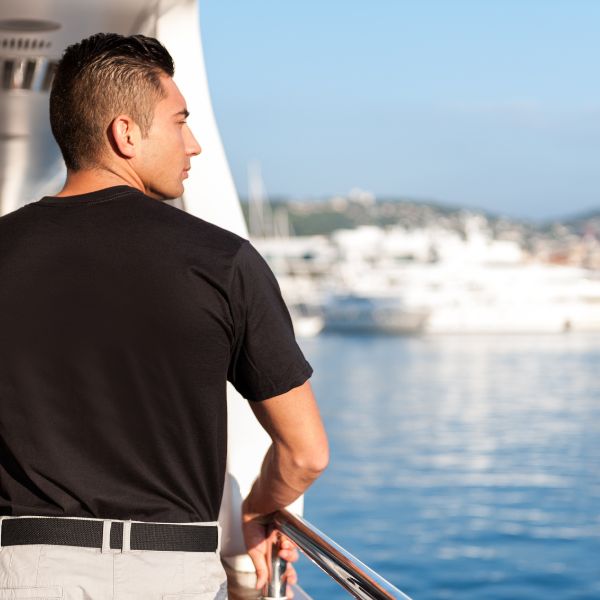For those working aboard superyachts, managing finances across multiple countries is part of the job. Offshore banking is a common topic in the industry, but what does it actually mean? More importantly, how can superyacht crew members ensure they use offshore accounts legally and effectively?
Navigating Offshore Banking: What Superyacht Crew Need to Know
By Tom Worthington
This article is published on: 18th April 2025
What is an Offshore Account?
An offshore account is a bank account held outside the account holder’s country of residence. These accounts are often established in jurisdictions known for financial privacy, currency flexibility, and, in some cases, tax efficiency. Common offshore banking hubs include Switzerland, the Cayman Islands, Singapore, and Luxembourg.
Key Features of Offshore Accounts
• Multi-Currency Access – Useful for those paid in different currencies or working in international waters.
• Privacy & Confidentiality – Some jurisdictions have strict banking secrecy laws.
• Tax Efficiency – Depending on residency status, offshore accounts may offer tax advantages.
• Asset Protection – Offshore banking can safeguard funds from political instability or legal claims.
Are Offshore Accounts Legal?
Yes. Offshore banking is entirely legal, provided account holders comply with tax reporting obligations in their country of residence. Many governments enforce strict regulations requiring individuals to disclose offshore accounts.
Key compliance measures include:
• Common Reporting Standard (CRS) – Over 120 countries automatically share offshore account data with tax authorities.
• Foreign Account Tax Compliance Act (FATCA) – A U.S. law requiring Americans to report foreign financial accounts.
Failure to disclose offshore accounts can result in heavy fines, tax penalties, or even legal action. However, when used correctly, offshore accounts serve legitimate purposes such as international transactions, estate planning, and investment diversification.
How Offshore Banking is Enforced
The days of absolute banking secrecy are over. Since the introduction of CRS in 2018, tax authorities worldwide have cracked down on undisclosed offshore assets. Here are a few key examples:
Switzerland’s Secrecy Crumbles
• Over 3.1 million accounts worth €1.3 trillion were reported in the first year of CRS.
• Countries like France, Germany, and Italy used this data to launch tax audits on individuals with undeclared Swiss accounts.
• Many account holders voluntarily disclosed assets to avoid penalties.
Spain’s Offshore Crackdown
• Over 11,000 undisclosed offshore accounts were uncovered from 2020-2023.
• Tax authorities recovered millions in unpaid taxes and issued heavy fines.
• High-profile cases, including football stars like Cristiano Ronaldo and Lionel Messi, highlighted the risks of offshore tax evasion.
UK’s HMRC Recovers £570 Million
• The UK’s tax authority identified over 150,000 residents with hidden offshore accounts.
• £570 million was recovered in unpaid taxes.
• Stricter penalties were introduced for failure to declare offshore wealth.

What This Means for Superyacht Crew
Superyacht crew frequently work across jurisdictions, earning salaries in different currencies and often living outside their home country.
This can make offshore banking an attractive option, but it’s crucial to remain compliant with tax laws.
Key Considerations:
• Know Your Tax Residency – Your tax obligations depend on where you are officially resident, not just where you work.
• Report Your Offshore Accounts – Avoid penalties by declaring foreign accounts where required.
• Seek Professional Advice – Offshore banking and tax laws are complex. Consulting a financial adviser who understands the yachting industry can help navigate the rules effectively.
Final Thoughts
Offshore banking is a useful financial tool when used correctly. However, with increasing transparency and global information-sharing agreements like CRS, hiding offshore assets is no longer an option.
Superyacht crew should approach offshore banking with full awareness of their legal responsibilities to ensure financial security without unnecessary risks.
To make sure you are doing it properly, feel free to contact Tom


